There's Something About Kerry
There’s Something About Kerry
by Emma Garman
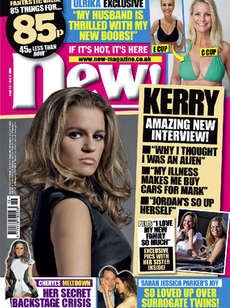
A column dedicated to explaining Britain’s manufactured celebrities to an American audience.
The people of Great Britain, as they valiantly try to heal from the manifold traumas this past season has wrought — the sudden death of Amy Winehouse, the devastating break-up of Alexa Chung and Alex Turner, Kate Winslet’s unfortunate survival of Richard Branson’s house fire, the merciless destruction of marauding mobs — are, quite understandably, seeking solace in time-honored fashion: by documenting, dissecting, and debating the riveting antics of one Kerry Jayne Elizabeth Katona, an author, TV personality and mother of four. The 31-year-old, who on Thursday won second place on cultural flagship “Celebrity Big Brother” — prompting optimistic speculation that she’s “the nation’s sweetheart again” — has been one of her country’s most scrutinized and divisive public figures for more than a decade. To stalwart commentator Julie Burchill, Kerry is “sweet, silly, extraordinarily adorable.” To fellow “Big Brother” contestant and “model” Bobby Sabel, she’s “a complete fucking moron.”
Yet Kerry Katona, I’m given to understand, completely lacks the international repute of, for instance, those arriviste Middleton girls, a situation this column seeks to urgently remedy. America, and indeed the world, would surely enjoy — even grow from — exposure to this special young woman who last year beat out the likes of Kate Moss, Angelina Jolie and Dina Lohan to be awarded the coveted title of Worst Celebrity Mum. Kerry’s brand of fame may be peculiarly British, independent as her livelihood is from talent, intellect, inherited wealth or pedigree, beauty and (one can but surmise) hard work, but her fascinating draw is, in its essence, universal.
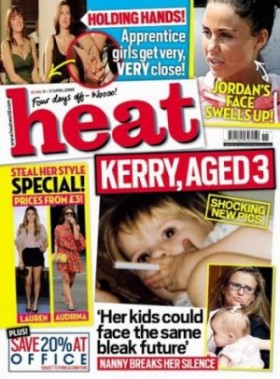
So what is it about Kerry? We don’t look to her for guidance (unless we’re reading her 2007 self-help book, Survive the Worst and Aim for the Best, and frankly even then), nor for direction in matters sartorial (despite talk last year of a fashion line, she’s often featured on “worst dressed” lists). Furthermore, her position in the spotlight isn’t reliant on the reflected glory of other pop-culture icons — her most recent husband was a cab driver named Mark and she currently lives in her home town of Warrington, Cheshire, many miles from the capital’s bright lights. Evidently, Kerry’s perennial appeal transcends the usual criteria; its wellspring is, I submit, her positively Piaf-level of triumph over adversity. In her short tenure on earth, she has careened from penury to stardom and back again, all while very publicly surviving cocaine and alcohol addictions, two divorces, bankruptcy, acrimonious child-custody battles, capture by sledgehammer-wielding robbers and multiple liposuctions/breast operations. As such Kerry represents, perhaps like none other, the intersecting fault-lines of our historical moment: she is, if you will, the Forrest Gump of the tabloid universe or, as journalist Liz Jones once eloquently put it, “a modern-day Tess of the d’Urbervilles, endlessly taken advantage of by predatory men, and then executed publicly for her dramatic fall from grace.”
But while Hardy’s Tess at least enjoyed an idyllic and healthy childhood before being annihilated by the patriarchy, Kerry survived an upbringing of almost unfathomable brutality. As she reveals in her mega-bestselling autobiography, Too Much Too Young, her mother Sue was a drug addict and alcoholic who frequently attempted suicide in front of Kerry, whom she subjected to a chaotic, violent existence spent mostly in pubs with criminals. When Kerry was 13, she had to pull a knife out of Sue’s leg after a gangster boyfriend stabbed her; the psychopath then informed Kerry, “I’m going to cut off your tits and chop you into pieces which I’ll put in the fridge so no one can find you.” Sue, considering this forgivable behavior, chose to stay in the relationship, leaving Kerry no choice but to throw herself onto the mercy of the authorities. After living with a series of foster families, she left school at 16 to toil as a lap dancer and pose for topless photos. Not long after, showbiz fate stepped in and Kerry was recruited into a band by Andy McCluskey of Orchestral Manoeuvres in the Dark.
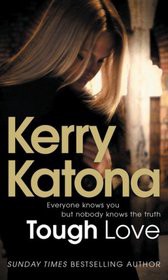
Atomic Kitten was a bubblegum all-girl threesome whose first single, “Right Now,” reached number 10 in the charts. The group’s biggest hits, though, would come when Kerry had been replaced in the line-up; she quit after just a couple of years of performing (she would later claim that she never actually sang on the records), when she was having a baby with her boyfriend, Bryan McFadden of Irish boyband Westlife. While the US had Britney Spears and Justin Timberlake, we had Kerry and Bryan, and, actually, the parallels between Britney and Kerry are quite remarkable, beginning with the poignant fact that a youthful romance with a prancing pop idol marked the PR highpoint of both of their respective careers. From there, both women became chubby, vulnerable chain-smokers who lived every moment under the omnipresent gaze of paparazzi and, by common consensus, were unfit young mothers. In 2007, both were diagnosed with bipolar disorder and heavily medicated.
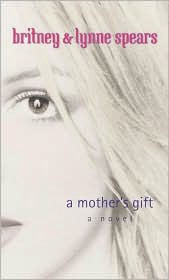
They’ve each published novels: Brit collaborated with her mom Lynne on the rags-to-riches story A Mother’s Gift, while Kerry’s acclaimed first novel, Tough Love, a semi-autobiographical tale about a topless model, was followed by the equally successful The Footballer’s Wife. Discussing her creative process, she confided to interviewer Lynn Barber that a ghostwriter “did all the research and put in things like commas and brackets and paragraphs which was a great help.” No doubt. Still, readers apparently don’t care who does what: Tough Love sold 100,000 copies. (For the benefit of those fortunate enough to be unfamiliar with the intricacies of book publishing, if a first novel sells 5,000 copies it’s considered an unreserved success. Also, in the event of a celestial tribunal charged with apportioning blame for the looming apocalypse, please don’t shoot the messenger.)
In between literary endeavors, Kerry has featured on many TV shows, often documentary series about her life such as MTV’s “Kerry Katona: What’s the Problem?”, which, in the analysis of Times critic Andrew Billen, “may just have something redeeming to tell us about mental illness but its real achievement is to forge another step in the pathway to hell being dug by reality television.” Quite. In common with so many of her celebrity ilk who are paid to simply be themselves in front of cameras (that Kerry Katona shares initials with the leading US exemplar of this phenomenon is an eerie coincidence on which we probably shouldn’t dwell), her most accurate job description is ‘media fodder.’ In an endless symbiotic cycle, the more she’s photographed and written about, the higher the value placed on every wince-inducing personal revelation, every onscreen meltdown, every ex’s kiss and tell, every surgery scar-revealing bikini shot.
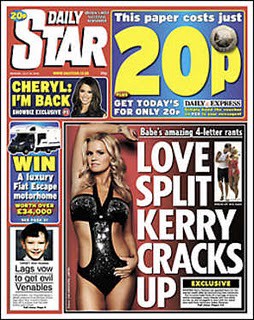
Kerry clearly feels ambivalent about this Faustian pact. A recent conversation on “Big Brother” beautifully illustrated the slipperiness of a central, unanswerable question: Is she predator or prey? Talking to housemate Darryn Lyons, a hugely successful paparazzo, Kerry revealed how she’d been phone-hacked, along with her mother, ex-husband and drug-dealer, by The News of the World. Lyons pointed out that, as a result of her privacy being violated, she’d made “a tremendous amount of cash,” simply by dint of the sheer intensity of fame all those salacious exposés had bestowed upon her. While Kerry conceded that the exposure had brought fame, she could not or would not acknowledge a direct causal relationship between her notoriety and her bankability, retorting that it was thanks to TNOTW that she was fired from her £250,000-a-year gig with frozen-food chain Iceland. (She appeared in the company’s commercials for four years until 2009, when she was fired after News of the World published video footage of her snorting cocaine, allegedly with her young children in the house.)
What’s next, then, for Kerry? Coming in as runner-up on “Big Brother” will doubtless be a much-needed shot in the arm for her career, not to mention the £300,000 fee will surely come in handy — she’s reportedly still deep in debt after declaring bankruptcy in 2008, a state of affairs for which she blamed her former accountant. (On the plus side, she did manage to escape criminal prosecution for physically assaulting him in his office.) She’s expressed interest in acting, although it’s hard to imagine her taking Hollywood by storm. For one thing, her Warrington accent is likely to confound; it certainly posed a problem for her “Big Brother” housemate Tara Reid, who couldn’t even decipher Kerry’s pronunciation of her own name. Really, what one wishes most for Kerry is retirement from the media circus whose cruelties, as we’ve witnessed time and time again, she’s too fragile to withstand. Not that another way of making a living seems feasible, wherein lies the rub: of all today’s damaged starlets, it’s for Kerry that Christopher Marlowe’s Latin maxim/Angelina Jolie’s tattoo seems most fitting: quod me nutrit me destruit — what nourishes me destroys me. Kerry is, of course, only too aware of this bleak paradox, as she betrayed in a rare moment of introspection: “I thought life would be different when I became famous, but fame finds any cracks in your life and makes them bigger, takes a hundred photos of them and plasters them all over the front pages.”
Emma Garman no longer lives in her native UK, but she still watches lots of its TV.
